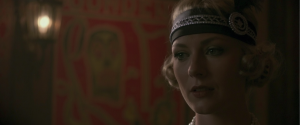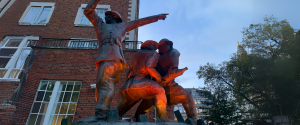Introduction

Playwrights, pilgrims and prisoners. You can explore them all on our Southwark walks, but let’s add pubs and peculiarities too. None more so than The Boot and Flogger on Redcross Way and the only vintner in an area that once hosted over 300 pubs, alehouses, taverns, inns and London’s largest brewery. Beer and hops built the Borough’s importance as an area. Only somewhere pushing the boundaries would serve wines there.
A Family Legacy: The Davy Family
Run by the Davy family, who started in the 1870s as a shipping family specialising in cigars, textiles and wines, they are now onto their fifth generation, with a famed reputation for wines. Fortified wines were particularly popular when the Davys started out, travelling better by boat than other wines. It is no wonder they still work with the fifth generation of the family behind Graham’s port to keep the tastes of 19th Century London current.

Stepping Inside: Atmosphere and Ambience
Several things strike you when you enter The Boot and Flogger. It’s hard to find unless someone guides you there. The hallway table blackboard suggesting their signature white port and tonic reminds you to expect the unexpected.
Stepping inside the bar, Simon Difford of Difford’s Wine Guide describes it:

“The bare floorboards and wooden panelled walls give it a warm enveloping feel – like drinking in a cigar box. Old leather wingbacks, books, brass measuring jugs, black and white prints and old signs convey a vintage feel.”
Often described as ‘Dickensian’, it reflects the world of the successful adult Charles Dickens imbibing and eating well, rather than the young boy experiencing acute poverty and fear a few streets away at the Marshalsea Prison.
The Name and Its History
The ‘boot’ was a leather shoe to hold a bottle steady, and the ‘flogger’ was a wooden plank to force the cork into a bottle to keep it airtight for the cellar. If anyone tells you a story of Dickens drinking in The Boot and Flogger, they are telling porkie pies. The pub did not exist until 1964, originally opening at 101 Borough High Street before moving in 1972.

Many people pass its simple frontage while looking at Crossbones Graveyard, but it is also one of the most popular venues for private tours and London Guided Walks’ own guides. Take your pick of a bar, private room, or outdoor courtyard. They don’t sell pork pies, but the Scotch egg is legendary. Everything about The Boot and Flogger feels mythical — yet it is one of London’s best facts.
John Davy and the Rise of Wine Bars
John Davy, the fourth generation, wanted to open a wine bar but faced opposition from licensing authorities. Within this radius of the City of London, there were tea houses, pubs and the Savoy and who needed a wine bar? Wine houses were once a popular trend run by the Davys and other vintners.

They catered to visitors of new theatres, department stores and railway stations of Victorian London, offering both wine and beer equally, and serving luncheons and suppers, often featuring London’s beloved seafood. But John Davy wanted to strike out alone without a brewery, which explains some of the difficulty in obtaining a licence.
Medieval Privilege and the Worshipful Company of Vintners
The future of London’s food and drink culture would be changed using medieval privilege. The Worshipful Company of Vintners was first awarded their charter in 1363 under Edward III, becoming one of the Great Twelve Livery Companies of London. Once so powerful that wine accounted for one third of England’s imports, their reach waned in the late 1600s when Charles II began taxing them for their stance in the English Civil War.

Port arrived from Oporto in ‘pipes’ (525-litre barrels) rolled off ships docked near London Bridge. The Guilds and Livery Companies were the first welfare state, supporting those in trades unable to work due to age or health. Victorian tests of the system showed the Vintners spent more on charitable works than legally required, rewarding freemen with the right to sell wine as sole traders within three miles of the Vintners’ Hall or along specified routes.
John Davy was a Free Vintner, which allowed The Boot and Flogger to remain the only venue in Britain selling wine without an alcohol licence, setting the trend for the wine bar era.

Legacy and Influence on London’s Food Culture
By the 1980s, queues formed at other Davy family venues across the City, Covent Garden and the Docklands. Serving wine by the glass and small dishes, rather than four-hour lunches, put London on the map for global food culture.

If Borough Market feels too bustling, step back in time at The Boot and Flogger. The site was a former cheesemonger, so unsurprisingly, their cheeseboards are highly praised. They still serve only one beer by the bottle, but the wine list is extensive, including low-alcohol options.
Booking and Experiences
Why not book a visit at the same time as purchasing tours with Nikky Catto to meet Southwark’s playwrights, pilgrims or prisoners guided walk, or as a private tour? If you don’t want to rush before Christmas, a gift voucher is easier to wrap than wine or a Scotch egg.
History unwrapped and London rediscovered fits any season.




